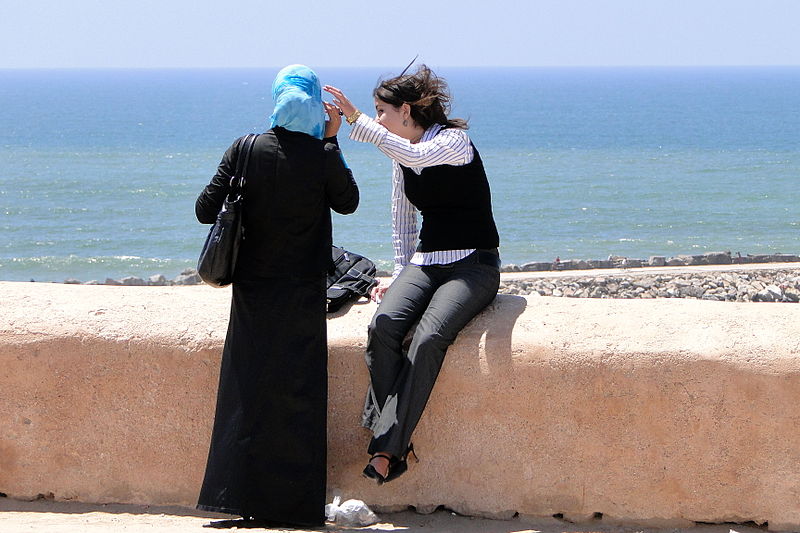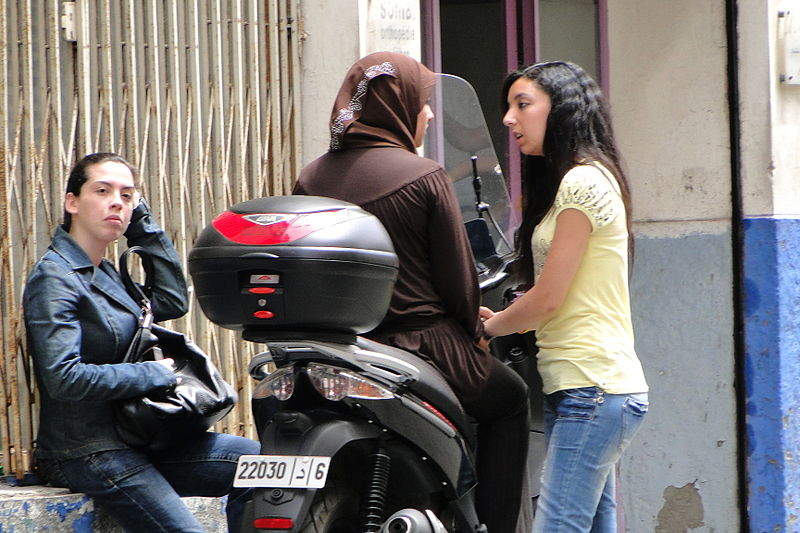By Rajae Nami
Moroccan law stipulates that after the death of a parent, daughters of the deceased inherit half of what their male relatives receive. While even some socially liberal Moroccans acknowledge that this system was suitable in the past, when men headed up the vast majority of households, it has made life difficult in the modern age for those 20% of homes in which women are the primary breadwinners.
“Women nowadays cannot rely on the financial support of relatives, as each nuclear family is overburdened with responsibilities and financial demands,” says Salma, the mother of a 10-year old who lives in a middle-class apartment complex near the edge of Rabat. Recently divorced, Salma is lucky enough to have purchased her own apartment when she was still married, and now relies on her income as a French teacher to raise her child. Were it not for her house and job, Salma would be in dire financial straits.
Today in Morocco, 20% of households are headed by women. Over half of these women are widows, 14% are divorcées, 20% are married, and many others are single mothers of the roughly 50,000 children born out of wedlock each year. When the death of a relative strikes, the wives, daughters, and sisters of the deceased often find themselves inheriting half of what other male relatives, even distant ones, receive.

Women along the Kasbah ramparts. Source: Wikimedia Commons
Morocco’s 2011 Constitution stresses equality between men and women, and the country is a signatory to international agreements such as CEDAW (Convention on the Elimination of All Forms of Discrimination against Women) and PIDESC (International Covenant on Economic, Social, and Cultural Rights). However, the relatively progressive Moroccan family code, a document outlining the laws and rules relating to family matters, fails to uphold equality in matters of inheritance. Inheritance law relies on the ta’sib rule, which declares that “female orphans who do not have a brother must share the inheritance with the male relative closest to the deceased…even if [he is] unknown and [has] never been part of the family.”
Challenging entrenched conservative norms
Ta’sib rules were set up “at a time when husbands, fathers, sons, uncles, and other men from the family took it upon themselves to financially sustain the women of the family,” says Lina, a lawyer and divorced mother of two. “It made sense, then, that men would receive a larger share to be able to do so.”
Lina points out, however, that “you can barely find such a family set up anymore. Today, families are breaking apart and family solidarity does not really exist the way it used to.”
She adds that “more women are heads of households now and more older people live alone…women receiving an equal share of inheritance could help ensure financial stability for women, as well as provide women with the moral standing to believe in their equal standing in society.”

Trio of girls with a motorbike. Source: Wikimedia Commons
Conservative segments of society and many of the country’s conservative religious scholars argue that ta’sib rules are derived from the Quran, and that women should always be financially supported by a male relative. In fact, 87% of Moroccan men and women oppose equality between men and women in matters of inheritance, according to a 2016 study by the High Planning Commission.
This works to the detriment of female heads of households. Many extended families refuse to support women breadwinners because they have a “difficult time accepting a woman’s status as single,” says Lina. Morocco’s economic troubles make matters worse: “It seems highly unlikely that relatives other than a husband of any socio-economic status would support a woman and her children for life,” she adds. Four million Moroccans, after all, live on under $4 a day, the informal economy represents 20% of the country’s GDP, and 31.5% of Moroccans aged 15 and up are illiterate (21.4% of men and 41.2% of women).
A long road ahead
Salafi religious scholar Mohamed Abdelouahab Rafiki is one of the few religious voices calling for equality in matters of inheritance. Rafiki has stated that, “The question of inheritance must be coherent with the evolution of society.”
Tunisia’s move towards equality in inheritance is poised to be a model for Morocco. Rafiki notes that “What is interesting in the Tunisian case is that other countries will be influenced by what happens there, especially Morocco. Morocco is the only other country in the region where we find this dynamic, the only Arab country that can currently progress on the issue of inheritance.”
“Laws are made by men and by the most powerful and are therefore not beneficial to women,” says Lina
Some Moroccans link the country’s conservative inheritance laws with other norms and traditions that hold women back.
“Women might have, for instance, guardianship of their children, but still need multiple express permissions from their ex-husbands for such benign matters as obtaining and picking up a passport for their children, requesting a visa at the relevant embassy to leave the country, then yet another authorization to actually leave the country with her children,” says Lina the lawyer.
“Laws are made by men and by the most powerful and are therefore not beneficial to women,” she adds.
Pending changes in Morocco’s inheritance laws, parents who want their daughters to receive an equal share of inheritance money find workarounds. Sometimes parents donate property or make financial gifts to their daughters to ensure their economic well-being while they are still alive. Husbands add their wives’ names to property, and other times, men step in to help a relative by giving up a share of their inheritance.
Such was the case with Salma. Her “father gave up part of his inheritance to help one of his sisters who was less well-off. He also convinced his other sisters to do the same. His less well-off sister was able to build herself a house. May God rest her soul.”
Rajae Nami is a senior consultant at the Navanti Group who specializes in development issues in the Middle East and North Africa (MENA). Before joining Navanti, she worked for Magharebia/Zawaya, a Maghreb-focused news website, and as a MENA media analyst.

